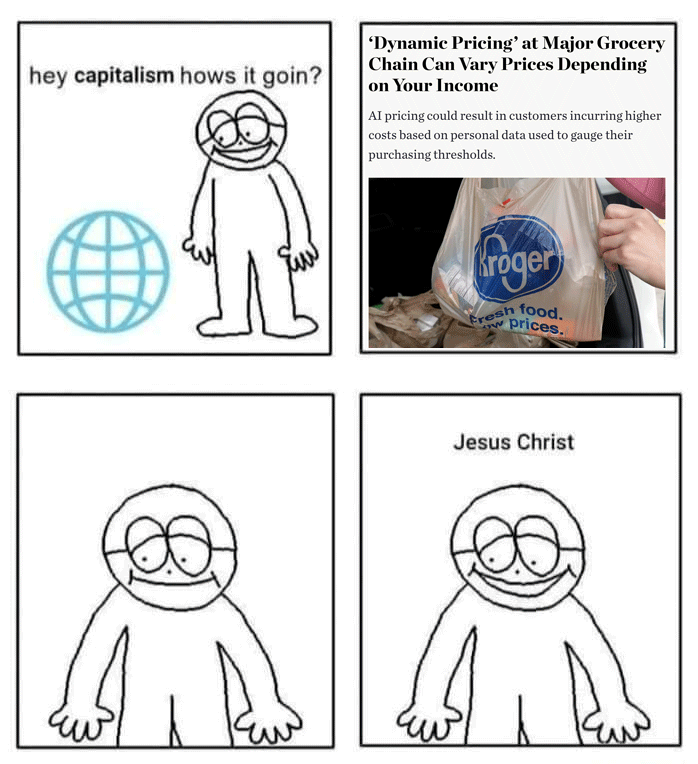It'd probably be the opposite. I bet they'd charge more to specific demographics - and common convenience store beverage brands would probably cost more for poorer people.
Plus, without controls, they'd probably end up charging different ethnic groups more for specific goods - they'd probably obfuscate it somehow, like to charge white people more for something they'd probably say they were doing it because you're a model train enthusiast or something. Or like "our consultants have told us that Tejano music fans are willing to pay a premium for coca cola" and so they jack up the price of coca cola for Mexicans without saying it's because they're mexican.
But yeah, I bet poorer people who have less free time would be "willing" to pay more for essentials because they often have less choice in where they get groceries. In other words you could force poor people with fewer options to accept jacked up prices whereas non-poor people may have the luxury of shopping around or paying someone else to get their groceries.
Also, if poor people were charged less there'd be a whole industry of personal grocery shoppers who'd get discounted prices for rich people and charge them a service fee in exchange.
